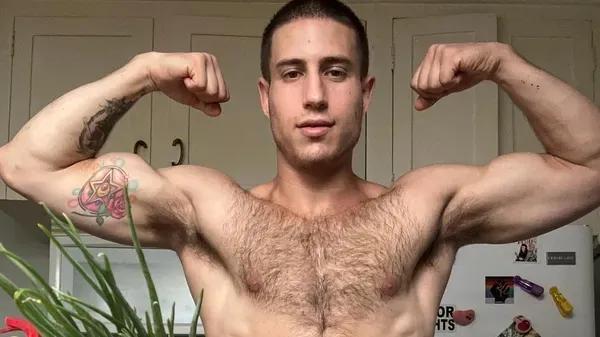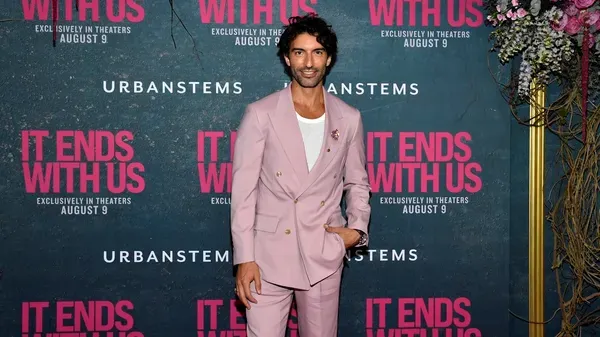
September 25, 2023
EDGE Interview: 'A Bunker Full of Gays' Face Alien Invasion in Erin Lerch's 'Break Break'
Kilian Melloy READ TIME: 9 MIN.
The world has ended and a coalition of alien species has conquered Earth in Erin Lerch's (they/them) Legion Cycle, an interrelated series of plays and audio dramas that examine – as the Author's Note in one of plays' scripts explains – "who has the privilege of being treated as a person, and who is seen as an outsider."
"Break Break," the third play in the cycle, takes place in a remote radio station. The middle-aged owner, Clark, is a gay man; his DJ, Rachel, is a cis woman whose friend from out of town – Miranda, stranded now as the invasion progresses – is a transwoman. The station's technician, Red, is nonbinary. Inexplicably safe even as the world outside perishes, this small band scrabbles to survive but they also use the station and a HAM radio to maintain some semblance of connection and reach out to other survivors with what scraps of hope they can provide.
All of Lerch's play are populated with LGTBQ+ characters, but orientation and gender identity are not the point; rather, it's the playwright's contention that since we have always existed as part of the world as it is, then we will also be part of any possible version of the world.
What better genre to investigate that theme than science fiction, the arena of the future, high technology, and the barely imaginable reaches of possibility? Lerch writes knowing that theatre companies don't all have massive budgets to work with, and in fact "Break Break," is being co-produced with The Artists' Theater of Boston. Imagination – suggestion, implication – rather than slick literalism is the key here, as EDGE learned in a conversation with Lerch and director Josh Glenn-Keyden (he/him).
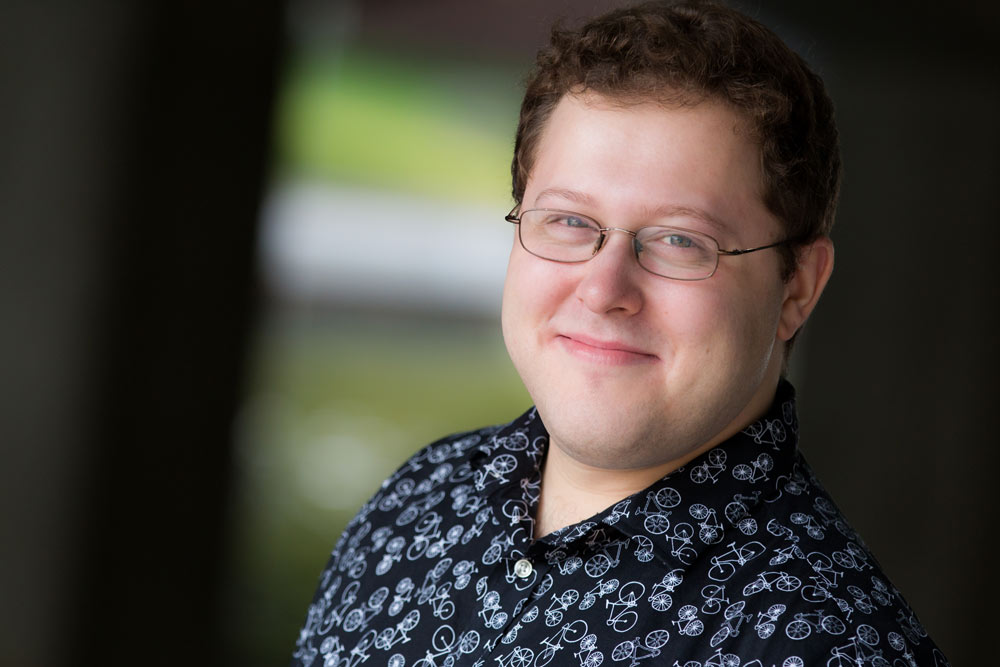
EDGE: Erin, how many plays have you planed for "The Legion Cycle?"
Erin Lerch: Five is the number of ideas that I have, but I don't really have a set end date or a set number that I'm aiming for. This is the third, plus [there is] a podcast. They all take place during and after an alien invasion/apocalypse, where this group called the Legion, which is made up of 11 different alien species, arrives on Earth and takes over – ostensibly for our own good, because we're wrecking the place.
The first play, "Crossing Flight," is not set within the human resistance, but with a group of survivors. The second play, "Shrike," is set in the human resistance.
EDGE: How episodic or serialized are these plays?
Erin Lerch: Each play is intended to stand on its own. You don't have to have seen or listened to any of the other media in order to see "Break, Break" and understand the story. That's how I approach each piece – that it should be able to stand on its own and make sense as a complete narrative without [the audience] having seen the other pieces, even though they do thematically talk to one another, and there are some crossover characters.
EDGE: Science fiction can be expensive to produce as anything other than text. How are you dealing with this?
Josh Glenn-Keyden: Erin's work is expansive and imaginative and ambitious. Some folks read these plays and think, "How are you going to do that on stage? You could do this in film, but how do you have multiple alien species on stage? How do you have multiple timelines exist on stage at once? [In movies] that would be CGI right in front of you." Erin just says, "This is the challenge for the theater." I've loved working on them, and in doing them we get to say, "This is possible, and this is possible on a fringe budget with some imagination and some excellent collaborators. And this work is just as viable as the living room play that everyone seems to be looking for sometimes."
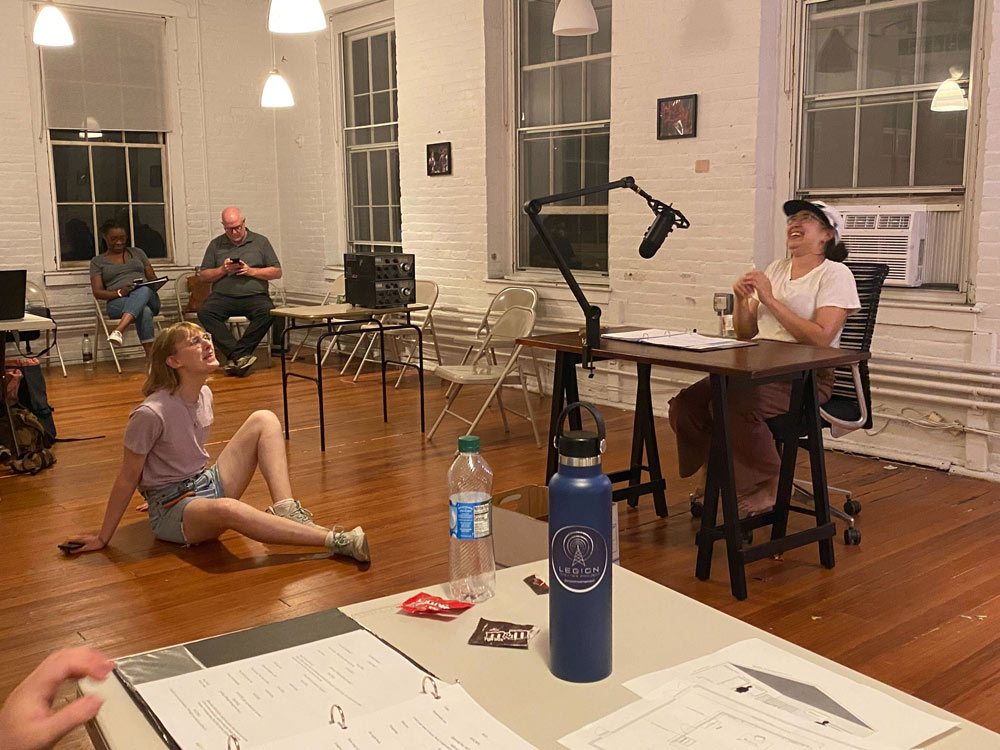
EDGE: I love the idea of science fiction from an LGTBQ+ perspective.
Erin Lerch: [These works] are inherently and deeply queer. The joke for "Break Break" is that the hashtag is, "A bunker full of gays."
[Laughter]
Erin Lerch: It's just there. There are casually queer and trans people on stage, and their queerness and transness is not a part of the story, it's a part of them. It's not about being queer or trans; it's that we get to be part of other stories, too. So, we get to work with a lot of great queer and trans artists both on stage and off.
The other thing about these plays, and about all of my work, is that everything is very hopeful. I'm not trying to sugarcoat anything; I'm not pretending that things are better than they are, especially in this play. Things are bad – aliens are taking over, and people are dying. It's bad, but there's always kind of a core of hopefulness in the stories, like, just because it's bad now doesn't mean it always will be. You always have the choice to find that hope and continue holding on to that hope. All of the "Legion" plays that are about that, even though it's post apocalypse, which often is a very dark genre, where it's like assumed that everything is going to be terrible forever. But to me, post apocalypse is a hopeful genre because the world [has] ended and things [have] kept going. There are still stories.
EDGE: The way we've seen LGBTQ+ people come under attack, especially trans people, feels like an alien invasion that's come down and scorched the earth all around us. Has the real-life situation has informed this play?
Erin Lerch: The immediacy of that particular situation has not changed much about how I approach this particular play. I am very deliberate in including queer and trans people all the time. I wrote the first draft of the first play in 2015. It was produced in 2018. "Shrike" happened between 2018 and 2022, was when it went up, and then "Break Break" was written this past year.
But I refuse to let that kind of hate and fear stop me from including trans people on stage, and including trans people in my art in every way that I can. Writing stories about trans people that are not about them being trans is a way to remind people that we're human, too, and we have other things going on. A trans person could survive the apocalypse and do all this great stuff, and it doesn't have to be about [being trans]. That is a core, important part of their character, but it is not the end all, be all of our existence. It is intentional, and it is an act of rebellion [to write that way].
I've heard from many trans folks who've been in the place that it is. It's a rare experience to be able to play someone whose identity aligns with their own on stage and not have it be, like, a tragedy. As important as stories about being queer and trans are – and I don't want to diminish how important that is – but that's not the end, right? There's a lot of other things going on in our lives, and during an alien apocalypse that's maybe not going to be the thing at the forefront.
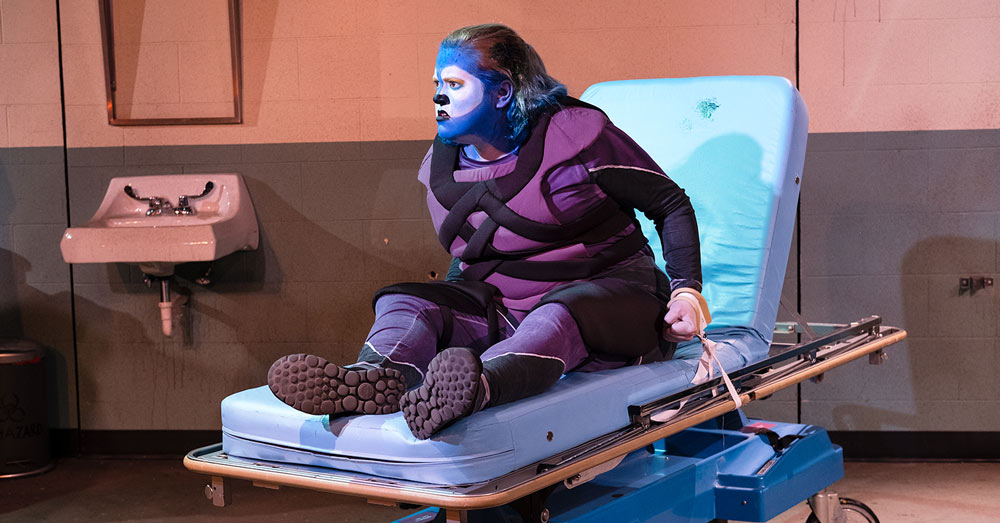
EDGE: So, maybe we don't need "Earth Boys Don't Cry."
[Laughter]
Erin Lerch: Maybe not.
EDGE: You really do have quite the cross section represented from the LGBTQ+ community here. In such a small cast of characters you've got Rachel, who's a lesbian; Miranda, who's transfemme; Clark, who's a gay man; and Red, who is non-binary. Did you want to be sure to cast LGBTQ+ actors to portray these roles? Or were you just looking for the right actor for each part?
Erin Lerch: It is very, very important to me that trans roles be played by trans actors. Because there are so few roles available for trans actors, they often have to fit themselves into roles that don't fit – that aren't written for them. So, it is imperative to me that trans actors be cast in trans roles. So, our Red is nonbinary, and our Miranda is trans.
I am more expensive and thinking cisgender roles, because there are so many cisgender roles that I'm happy to flex on those. I don't know if you've heard the M&M metaphor for this: There's a bowl with three M&Ms for trans actors, and there's a bowl full of M&Ms for cis actors. If you take any of them out of the trans bowl, it's much more noticeable than if you take them out of the cis bowl. We were very deliberate, and I have always been very deliberate, in casting trans actors in the roles that call for trans actors.
"Break, Break: A Legion Cycle Play" produced in partnership with Artists'
Theatre of Boston, runs Sept. 15-23 at the Black Box Theatre at the Boston Center for the Arts.
Kilian Melloy serves as EDGE Media Network's Associate Arts Editor and Staff Contributor. His professional memberships include the National Lesbian & Gay Journalists Association, the Boston Online Film Critics Association, The Gay and Lesbian Entertainment Critics Association, and the Boston Theater Critics Association's Elliot Norton Awards Committee.

